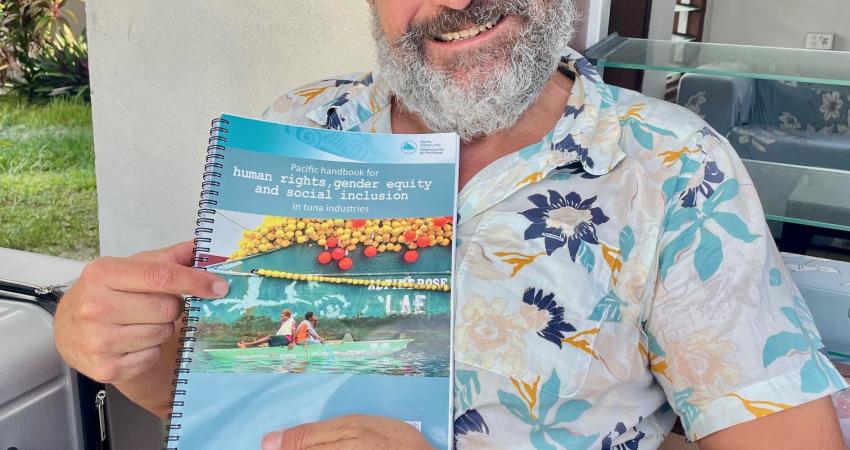
In the Pacific, there are communities and people deeply connected to the sea, where stories of resilience and adventure fill every wave. Among them is Mr. Francisco Blaha, who started his journey on fishing vessels at just 18 years old and has since become a seasoned advocate for fishermen's rights.
Venturing into the Pacific as a migrant fisherman in 1991, Mr. Blaha spent four years navigating different vessels without formal contracts or immigration ties, a practice he found unsettling.
It was not until 1995, upon arriving in New Zealand, that he secured a work visa, granting him legal employment and union membership.
Reflecting on his experiences, Mr. Blaha noted a concerning decline in fisher’s income and rights compared to four decades ago. This realisation, going against the flourishing fishing industry, sparked personal contemplation about departing from his lifelong profession.
"For me, the issue of fishers' rights is the most important thing among fishers and the industry. I have sat in meetings and attended many fisheries-related meetings, and there were hundreds of people discussing the future of fisheries, yet the only reason why they are there was because there were fishermen in those fishing boats," he said.
Transitioning into fisheries consulting and legal roles, he remained closely connected to fishing crews while advocating for their rights.
He stated that one of the powerful tools to advocating for the rights of these fishermen and fisherwomen was the SPC Pacific Handbook for Human Rights (HR), Gender Equity, and Social Inclusion (GESI) in Tuna Industries.
The book, which was launched in October 2023, was an illustratively tailored guide designed to assist fisheries practitioners in national agencies, the private sector, training institutions, and civil society organizations (CSOs) to better understand and apply HR/GESI lenses with the vision of an inclusive, equitable, and socioeconomically thriving Pacific tuna industry.
"Increasing awareness about this issue is crucial," Mr. Blaha emphasized. “Basically, what happens in the fishing industry is offshore, and most people do not even see it, unless you fish. I have been making a lot of photography for my work, and my focus has always been the people or the fishers. For me, fisheries are not about fish; it's about people. Bringing awareness to the problems is perhaps the first step, and I believe the manual does that very well,” he added.
Mr. Blaha revealed that this would be the first time for him to witness a manual with in-depth content to be shared across the region, particularly to those in authority within the fisheries sector.
Despite the lack of firsthand experience among many fisheries managers and administrators, Mr. Blaha stressed the imperative of prioritizing crew rights.
"Even within RFMOs, opposition to addressing crew rights persists," he lamented, highlighting the absence of dedicated regulatory frameworks safeguarding fishermen's welfare.
Beyond traditional advocacy, Mr. Blaha leverages digital platforms to amplify his message. Through insightful blog posts and social media shares, he spreads awareness about the handbook's significance and increasing popularity across the Pacific region.
Mr. Blaha while acknowledging progress continue to advocate for broader dissemination of HR/GESI principles to immigration and labour authorities, vessel registries, and distant water fishing nations operating in the Pacific.
Additionally, he proposes integrating audio-visual components into traditional printed formats to cater to the multimedia preferences of younger generations.
This forward-thinking approach not only adapts to evolving communication trends but also bridges generational gaps, empowering youth with a deeper understanding of fishers' rights.
Through targeted multimedia outreach, Mr. Blaha envisions a future where awareness transcends boundaries, igniting widespread advocacy for the rights and welfare of fishers in the region.
-ENDS-